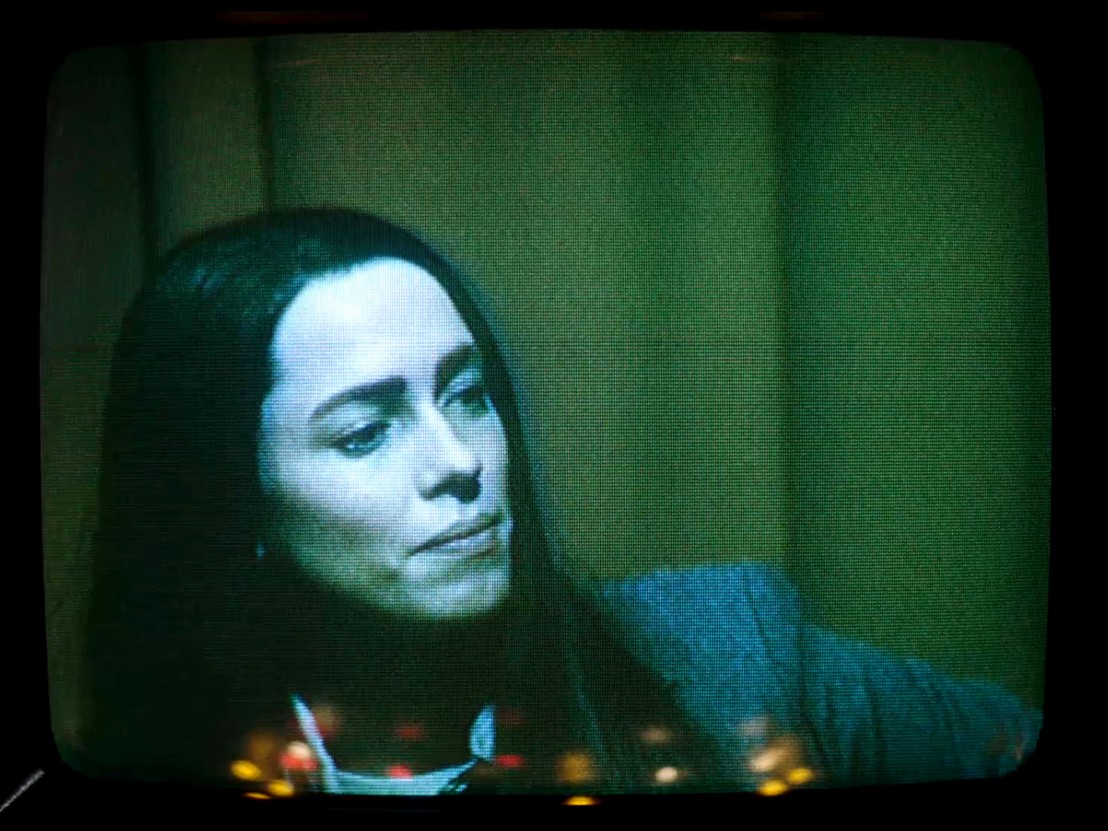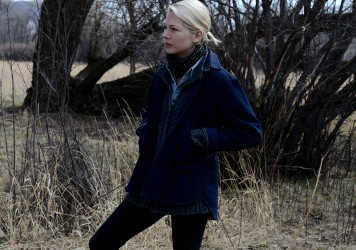
A stunning central turn from Rebecca Hall grounds Antonio Campos’ dramatisation of TV reporter Christine Chubbuck’s on-air suicide.
Rebecca Hall wows in this gripping account of the Christine Chubbuck story, the American TV reporter who committed suicide live on air in 1974. More than an accomplished period-cum-biographical piece, director Antonio Campos’ partially fictionalised tale acts as both a fable about modern journalism and a timely reminder of the intrinsic link between mental health and firearms that has become central to the debate around gun control in America.
Chubbuck worked at a local news station in Sarasota, a beat where her most popular reports concerned the likes of local strawberry sales. She yearned for more significant stories – in the opening scene we see her pretending to interview President Nixon. In her own talk show segment, Suncoast Digest, she tries to introduce weighty issues such as agricultural reform, but her boss Michael (a terrific Tracy Letts) instead castigates her increasingly abstract pitches, calling for “jucier stories” to remedy the “fucking dire situation” of the station’s low ratings.
Chubbuck suffered from recurring bouts of depression owing to bipolar disorder (as we now know it), and as the TV reports become more sensationalised, so her view of events around her shifts. She keeps up with the macho nature of the newsroom, but can’t shake off an unrequited crush on lead news anchor George (Michael C Hall) that defines her relationship to it, nor does she have the respect she needs from her loudmouth news editor – Chubbuck never had a shot at promotion to a better station in Baltimore. The gap between expectation and reality lies at the heart of her downfall.
The question of why she killed herself doesn’t fuel the drama as much as the manner in which she carried out the act. On camera, Chubbuck recited a speech as she reached for a gun: “In keeping with Channel 40’s policy of bringing you the latest in ‘blood and guts’… you are going to see another first – attempted suicide.” It’s no surprise the event inspired Paddy Chayefsky’s script for Network, Sidney Lumet’s satirical masterpiece about TV news selling its soul for ratings. Or as Chayefsky is alleged to have said: “Television will do anything for a rating… anything.” When popularity is everything, what is an isolated and unloved person to do?
Some pacing issues aside, Campos doesn’t seek to answer all of the secrets to Chubbuck’s decisions, and indeed casts a shade of Watergate-era paranoia over the proceedings (Chubbuck pointedly says there are “different versions of ourselves trying to be the same us”). It’s embellished by production designer Scott Kuzio’s flawless re-enactment of ’70s TV journalism, as well as Joe Anderson’s beige-palleted cinematography. But this is a film that belongs to Rebecca Hall. Chubbuck is entirely sympathetic in Hall’s interpretation – funny, too, showing a sardonic wit that placates the film’s occasional overemphasis on her mental condition. When she eventually picks up the pistol, you’re urging her not to do it – as is the case with the 60 per cent of gun-related deaths by suicide still occurring across America today.
Published 29 Jan 2016

By Ed Gibbs
Todd Solondz’s typically bleak ensemble piece serves up a fresh ingredient for an otherwise familiarly grim trek across America.

By Ed Frankl
Viggo Mortensen stars as a doting forest-dwelling father in this impressive debut from writer/director Matt Ross.

By Ed Frankl
Kelly Reichardt confirms herself as one of America’s greatest living filmmakers with this stunning three-part character study.